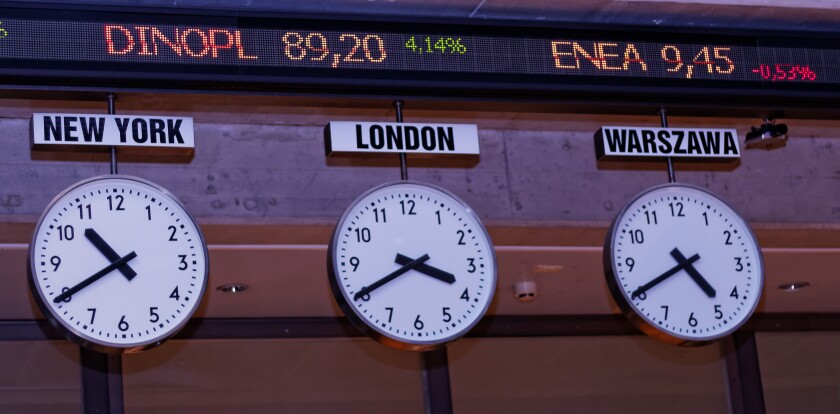Polish e-commerce logistics firm 3LP on Monday pulled what would have been Poland’s first initial public offering in 2022, blaming market conditions.
The company had launched the deal on April 26 and planned to raise Z100m (€21.4m). Trigon Dom Maklerski was global co-ordinator.
Market backdrop was poor on Monday, with the Warsaw stock exchange index WIG losing 2.4%.
The Cboe Volatility Index, a measure of the expected volatility of the S&P 500, surged more than 15% to highs of 34.9. IPOs are widely considered possible below 20.
However, issuers in western Europe are beginning to feel a bit more confident that markets would support a smaller, sensibly priced IPO in a profitable niche sector. On Monday, Eureking Spac and the green hydrogen producer Lhyfe opened books to list in Paris while the Swiss property company Epic Suisse launched an IPO in Zurich.
But the cancellation of 3LP’s deal is a reminder that investors are not yet ready to look east.
“Inflation and interest rates are the deciding factor at the moment,” said Bernd Maurer, head of institutional equity company research at Raiffeisen Bank International (RBI). “Then there is the war of course, with direct and indirect effects on supply chains or commodities supply and cost.”
Inflation fuelled by rising energy prices is hitting the region harder than the West. For Poland, ING predicts inflation to peak at 13%-15% in 2022 and expects the Polish central bank to raise interest rates to 6.5%.
The proximity of countries in the CEE area to Russia and Ukraine means investors are nervous about the war spilling over.
But in the longer term, “potential is there, and it’s huge,” said Maurer at RBI.
Between 2010 and 2019, in the 10 years before the pandemic, the GDP of eastern European countries grew by 2.6% per year on average, according to Statista data.
“The impact of Covid-19 was also smaller in some countries, or they recovered faster,” added Maurer. “This offers opportunities for privatisation on the one hand, but private equity portfolios of companies have also grown in the past years, where listings are always an option.”
